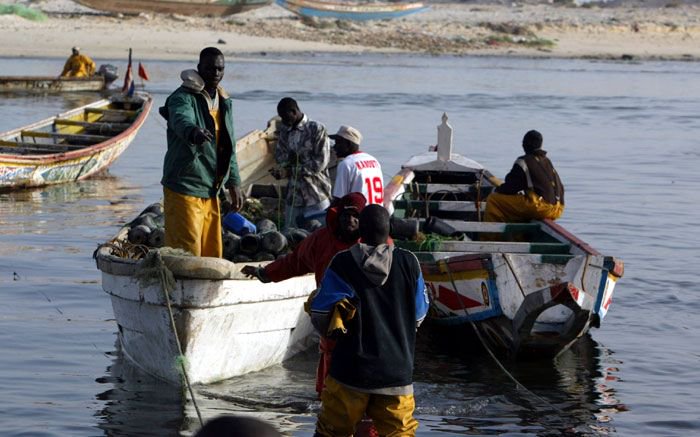Nouakchott, London – On the first day of Ramadan, Mauritanian authorities launched an initiative to distribute fish in rural areas and sell them at reduced prices in order to increase the consumption of fish during the holy fasting month.
The fish market in Mauritania suffers from many problems because people tend to prefer red meat despite the abundance of fish.
Mauritania has a 780-kilometer beach and it is considered among the richest countries in fish. The Minister for Fisheries and Marine Resources Nani Ould Chrougha managed the fish distribution and delivery to many regions in the interior regions and visited the national company for fish distribution.
The company’s director general Al-Mokhtar Weld Ahmed Weld Bou Saif said the initiative aims to motivate Mauritanians to consume fish and include it in their diet.
He pointed out that the company has opened 53 distribution points in different areas across the capital Nouakchott and that more points will be opened soon to cover different provinces, along with many mobile distribution caravans.
He added that the company distributes over 7,000 tons of fish daily and that this quantity will be doubled in Ramadan to ease the daily expenses on citizens during this month. He noted that the government provides citizens with fish at affordable prices.
Mauritania exports over two million tons of fish yearly to Europe, Japan, Russia and China.
“Tajine” is a staple of Mauritanian cuisine. The potato and meat dish is usually served with a soup. The Ramadan iftar table is not complete without the Mauritanian green tea prepared with mint.
The Mauritanian society is religious and is characterized by its strong social, family and tribal ties. These ties seem more obvious in Ramadan and many wealthy people are keen to prepare large feasts to invite their neighbors or send to the needy.
In most of rural cities, people rush to prepare massive meals in mosques.
People wandering Mauritania’s streets during the day really feel that people are fasting.
Restaurants and cafes are closed and the public places are free of smokers.
During Ramadan, authorities open some stores to sell products at reduced prices so the poor can afford them. These stores often witness a significant turnout, where people form long lines in wait to access them.
